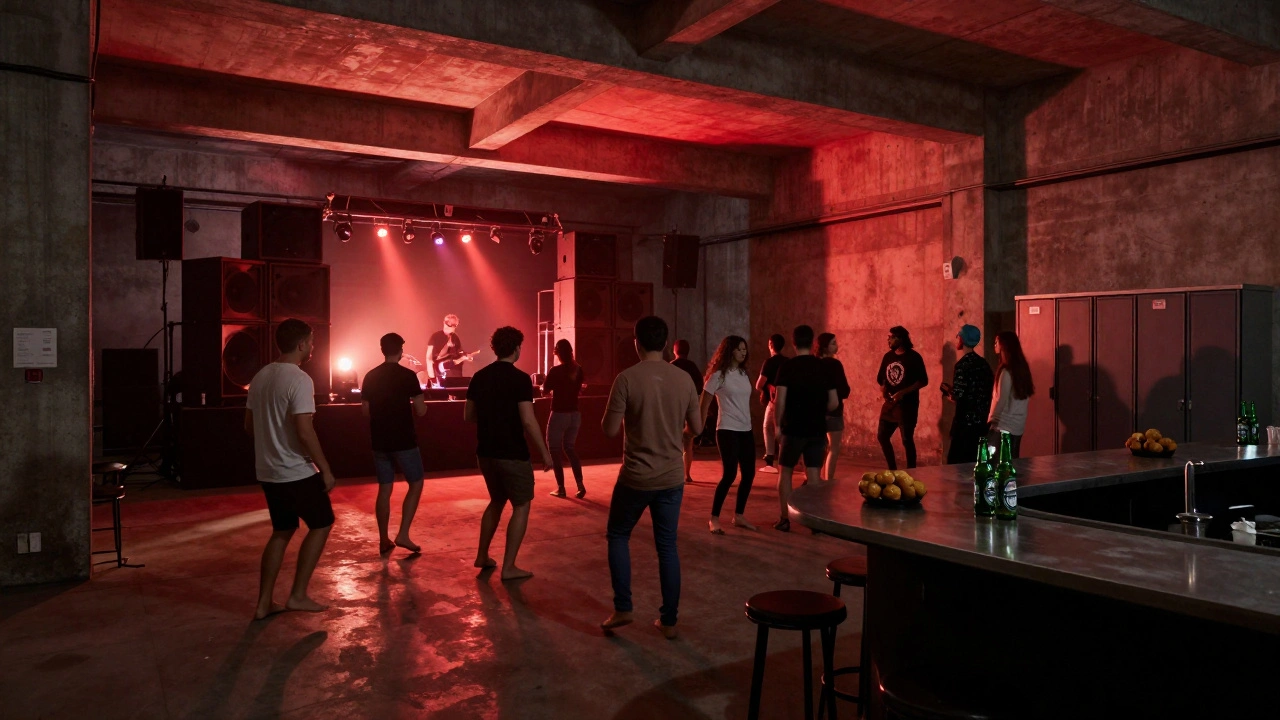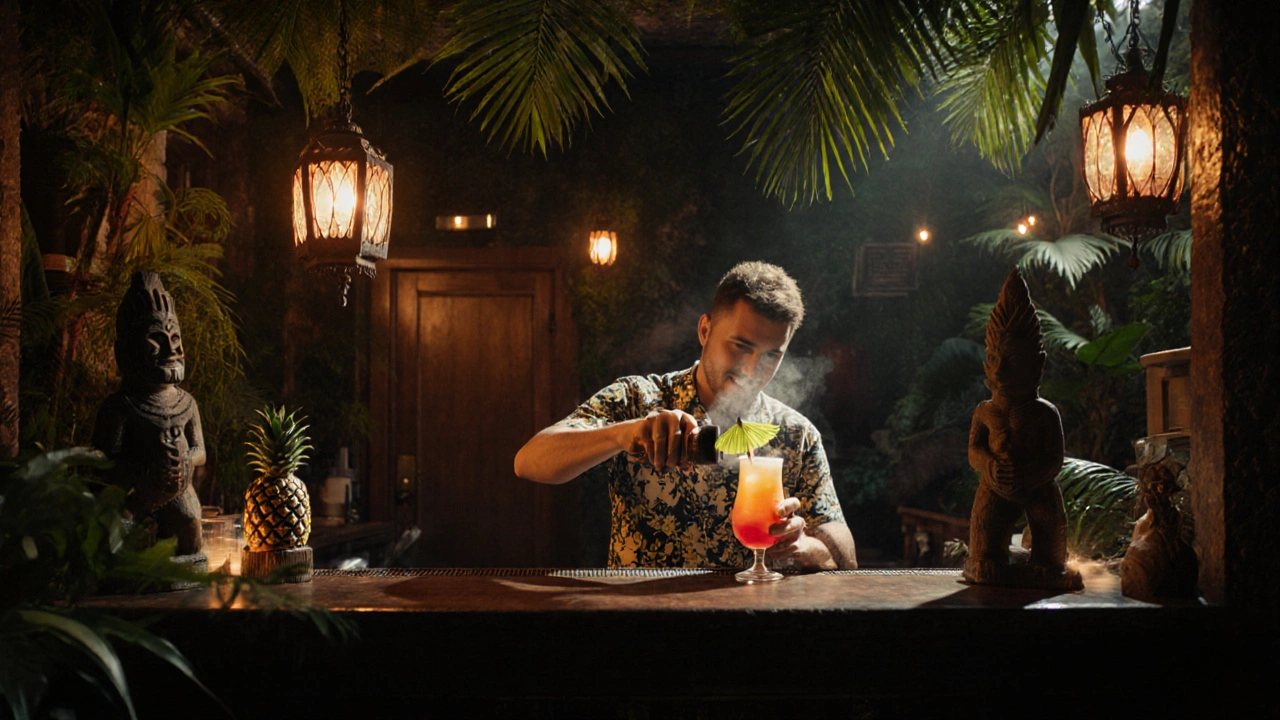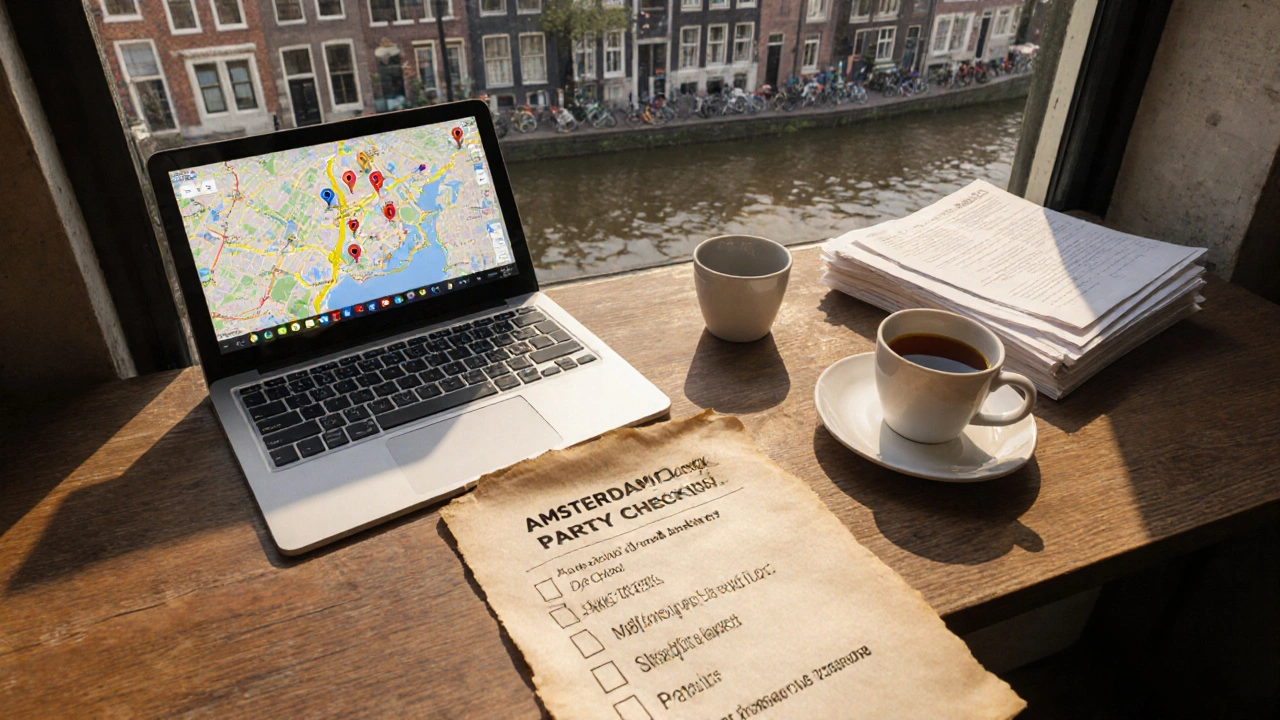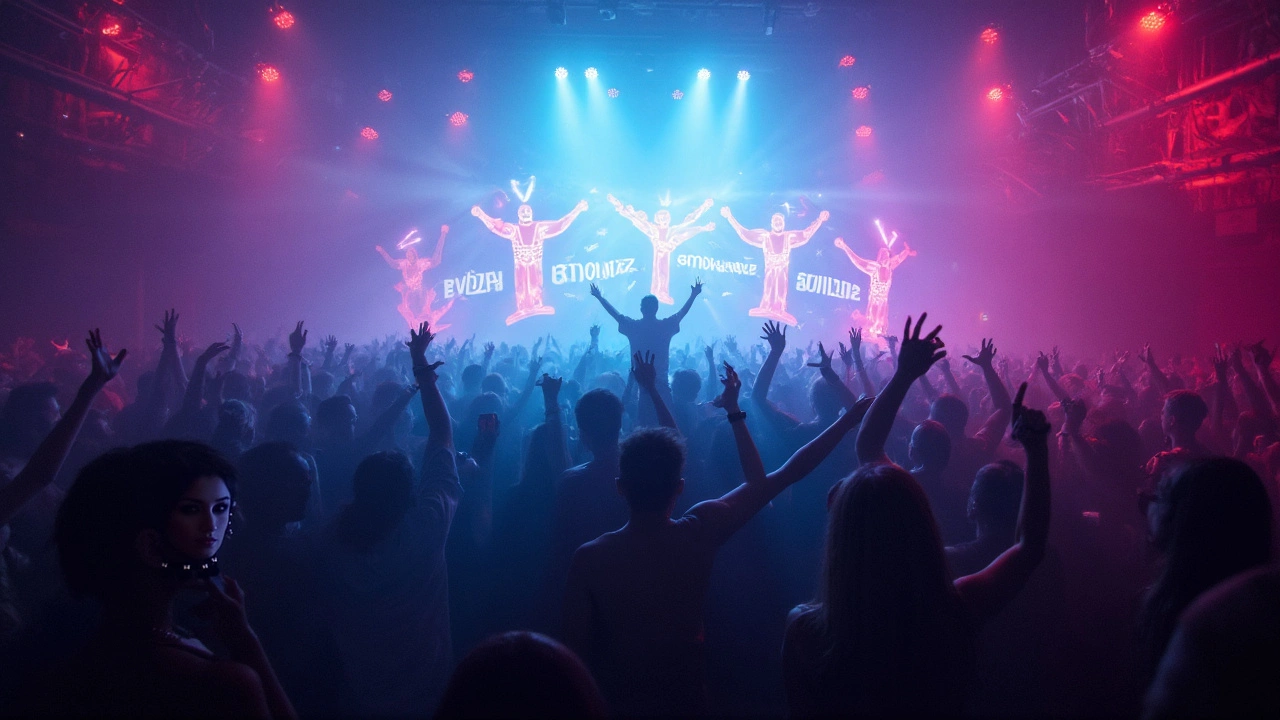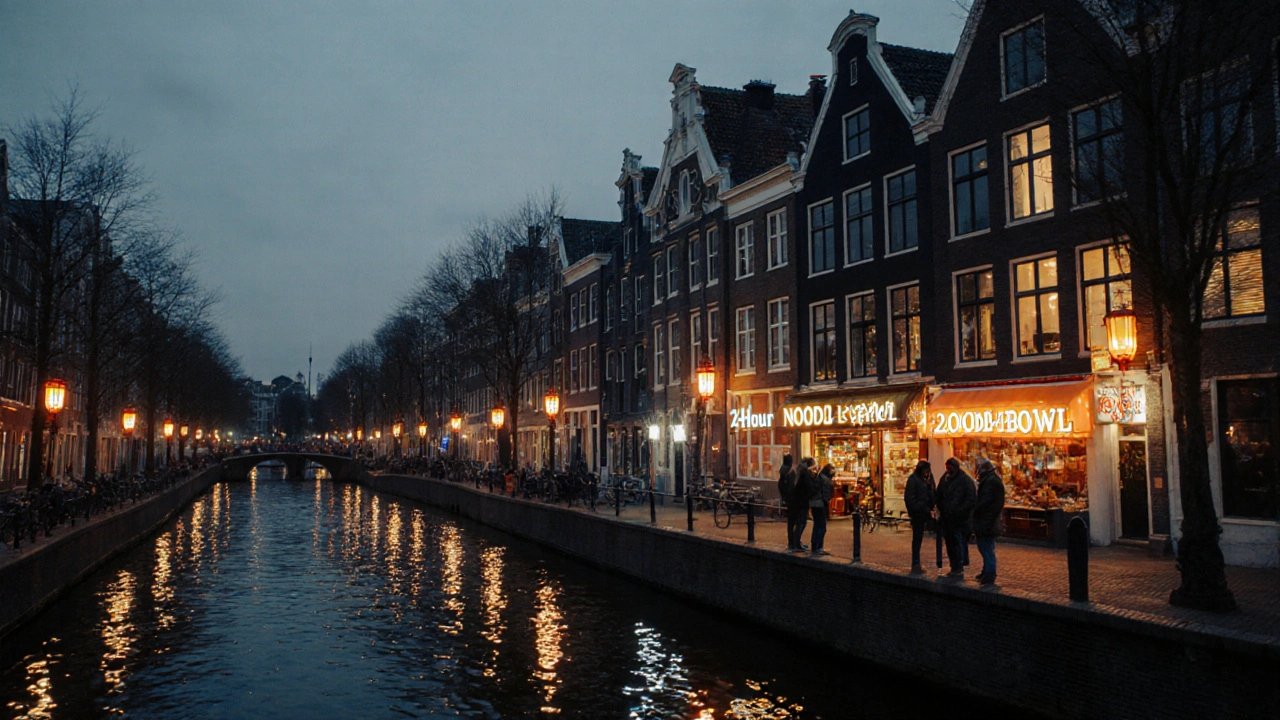In Amsterdam, where the canals reflect neon lights and the air hums with the bass from hidden clubs, Melkweg isn’t just another venue-it’s the pulse of the city after midnight. You won’t find it tucked away in a back alley like some of the city’s underground spots. It sits proudly on the edge of the Oud-West district, a stone’s throw from the Westerkerk and the bustling Raadhuisstraat, where cyclists weave past cafés still lit at 2 a.m. This isn’t just a place to see a show. It’s where Amsterdam’s identity as a city that lives for creativity, rebellion, and sound comes alive.
More Than a Concert Hall
Melkweg started in 1970 as a squat turned cultural center, born from the same wave of protest and artistic freedom that gave Amsterdam its reputation for tolerance. Today, it’s a 1,800-capacity multi-space complex that hosts everything from underground techno sets to indie rock bands, spoken word nights, film screenings, and even queer art exhibitions. The main hall, with its industrial brick walls and towering speakers, feels like a temple to sound. The stage isn’t just raised-it’s a platform for voices that don’t get space elsewhere.
Think of it as Amsterdam’s answer to London’s Barbican or Berlin’s Berghain, but with a distinctly Dutch twist. While Berghain demands silence and discipline, Melkweg thrives on chaos and connection. You’ll see students from UvA in vintage Dutch band tees, expats from Berlin swapping stories over bitterballen, and local DJs who’ve played every basement in the Jordaan. It’s not about exclusivity. It’s about belonging.
What Happens Inside
On a Friday night, you might catch a rising Dutch indie band like De Staat or a surprise guest from the UK’s experimental scene. The next night, it’s a vinyl-only DJ set from a Rotterdam producer who only plays records from the 1990s. The lineup doesn’t follow trends-it follows curiosity. That’s why locals keep coming back. You never know if you’ll hear a Dutch hip-hop legend like Brainpower or a noise artist from Utrecht who’s never played outside their garage.
The smaller rooms tell their own stories. The Expo room is where new artists test sets before they blow up. The Bar is where you meet people who’ve been coming since the ’80s, sipping on a Heineken or a local craft beer like De Molen or De Prael. The Lab hosts film nights-think Dutch documentaries on migration or underground punk films from the 1980s. You might leave with a new favorite band, a new friend, or just a deeper sense of why Amsterdam still feels alive when other cities shut down.
When to Go and How to Get There
Don’t show up at 9 p.m. expecting a packed room. Melkweg doesn’t start until after midnight. The real energy kicks in around 1 a.m., when the city’s other clubs are winding down. That’s when the crowd shifts from tourists checking off a bucket list to locals who know this is where the real music lives.
Getting here is easy. Take tram 13 or 17 from Centraal Station and hop off at Amstelstation. It’s a 10-minute walk past the canal-side cafés and bike racks still full at 2 a.m. If you’re coming from the Red Light District, skip the Uber-just rent a bike from MacBike or Black Bikes. The ride along the Amstel River under the streetlights is part of the experience.
Pro tip: Check the schedule on melkweg.nl at least 48 hours before. Tickets sell fast, especially for local acts. And if you’re under 23? Bring your student ID. The youth discount is real, and it’s the only reason half the room is still in their university sweaters at 3 a.m.
Why It’s Different From the Rest of Amsterdam’s Nightlife
Amsterdam has no shortage of bars and clubs. There’s the polished, tourist-heavy De School in the industrial zone, the divey Paradiso just down the canal, and the late-night karaoke joints in the Jordaan. But Melkweg is the only place where you can walk in and find a free jazz improvisation on one floor, a protest art installation on another, and a DJ spinning Dutch gabber on the third-all under one roof.
It’s not just about music. It’s about the culture that surrounds it. The posters on the walls aren’t ads-they’re hand-painted by local artists. The staff? Mostly volunteers who’ve been coming here since they were 16. The rules? No dress code. No ID checks unless you’re buying alcohol. No VIP section. No bouncers with attitude. Just a space that says: if you’re here to listen, you’re welcome.
Compare that to the Red Light District, where the nightlife is transactional, or the trendy bars in De Pijp, where the vibe is curated for Instagram. Melkweg doesn’t care if you post a photo. It cares if you feel something.
What to Expect When You Walk In
The first thing you’ll notice is the smell-old wood, spilled beer, cigarette smoke from the outdoor terrace, and the faint hint of incense from the art gallery. The lighting is low, the sound is loud, and the crowd moves like a single organism. You’ll see someone dancing alone in the corner, eyes closed, lost in the beat. You’ll hear someone shout a lyric in Dutch that you don’t understand but feel anyway.
There’s no pretense. No one’s checking your shoes. No one’s sizing you up. You’ll find a mix of Dutch elders who remember the punk days, young creatives from the Hague, and expats who moved here just for nights like this. One time, I saw a retired teacher from Leiden headbanging next to a Moroccan-Dutch poet who just won a national award. That’s Melkweg. It doesn’t sort people by background. It sorts them by presence.
Where to Go After
If you’re still buzzing at 4 a.m., don’t head home. Walk five minutes to De Kas, a 24-hour café with strong coffee and Dutch stroopwafels. Or grab a broodje haring from the night vendor near the Amstel bridge-crisp, salty, and perfectly Dutch. If you’re feeling adventurous, hop on a night bus to De Nieuwe Anita in the Jordaan, where the crowd is quieter but the conversation is deeper.
And if you’re still up at 6 a.m.? You’re not alone. Amsterdam doesn’t sleep-it just changes frequency.
Why Melkweg Still Matters
In a city where Airbnb has replaced half the local shops and chain coffee brands have taken over the corners, Melkweg remains a rare space that hasn’t been sanitized. It’s not a brand. It’s not a trend. It’s a living archive of Amsterdam’s rebellious soul.
It’s where a 17-year-old from Zaandam first played her own songs. Where a Ukrainian refugee found community through a poetry night. Where a group of students turned a forgotten storage room into a silent disco that lasted until sunrise. It’s not perfect. Sometimes the sound system breaks. Sometimes the line outside is too long. But it’s real. And in a city that’s becoming more polished, more predictable, more expensive-that’s worth holding onto.
So if you’re looking for the heartbeat of Amsterdam’s night, skip the postcard tours. Skip the crowded bars near Dam Square. Head to Melkweg. Bring your curiosity. Leave your expectations. And let the city speak through the music.
Is Melkweg open every night?
No, Melkweg isn’t open every night. It operates on a schedule based on events, usually open Wednesday through Sunday, with shows starting after midnight. Check melkweg.nl for the current calendar. Weekdays are quieter, but often feature more experimental or niche acts.
Do I need to buy tickets in advance?
For most shows, yes. Popular local bands, international acts, and special events sell out fast. You can buy tickets online through melkweg.nl or at the box office, which opens two hours before showtime. Walk-ins are sometimes possible for smaller gigs, but don’t count on it.
Can I bring my own drinks into Melkweg?
No. Outside alcohol is strictly prohibited. But the bar offers a solid selection of Dutch beers, wines, and soft drinks at fair prices. Try a local craft brew like De Molen or a Heineken on tap-they’re part of the experience.
Is Melkweg family-friendly or suitable for younger visitors?
Melkweg hosts daytime events, film screenings, and family-friendly shows during the week, especially on weekends before 6 p.m. But after 9 p.m., most events are 18+. Under-23s get discounts with a valid student ID. Always check the event description for age restrictions.
How does Melkweg compare to Paradiso?
Both are iconic Amsterdam music venues, but they feel different. Paradiso is older, more historic, and often hosts bigger international acts. Melkweg is more experimental, more local, and more diverse in programming. Paradiso feels like a concert hall; Melkweg feels like a living art project. Many locals go to both-but only Melkweg lets you stumble into a poetry slam after a techno set.
Is Melkweg safe at night?
Yes. The venue is well-lit, has trained security staff, and is located in a busy, well-patrolled part of Oud-West. The area is generally safe after dark, especially around the tram stops. As always, keep an eye on your belongings, avoid overly crowded hallways, and trust your gut. Most people leave feeling energized, not uneasy.
If you’ve ever wondered what makes Amsterdam’s nightlife different from other European cities, Melkweg holds the answer. It’s not about luxury. It’s not about exclusivity. It’s about space-for sound, for ideas, for people who don’t fit anywhere else. And in a city that’s changing fast, that’s the most Dutch thing of all.

